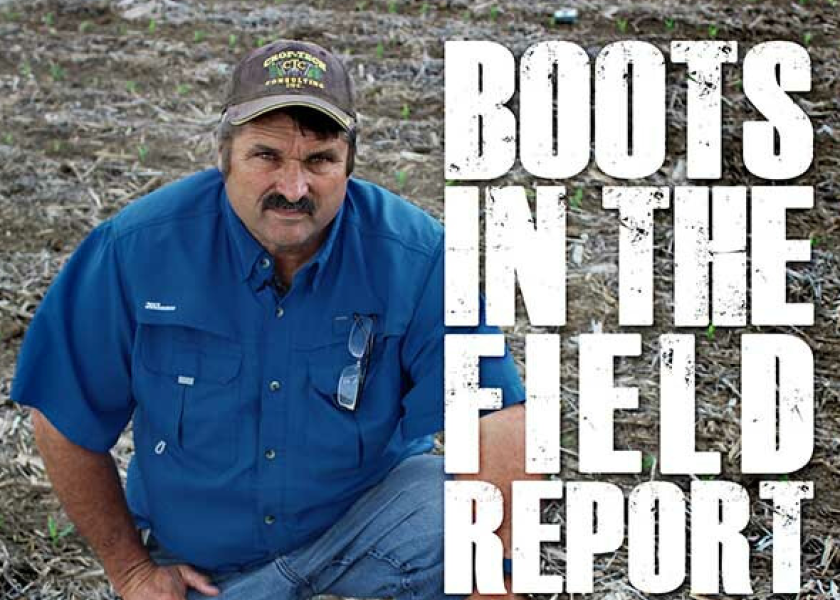Ferrie: Disease Pressure is Bringing Corn to its Knees

As Ken Ferrie travels through parts of central Illinois this week, he sees a corn crop that has changed radically in the past seven days.
“Disease pressure is bringing fields to their knees, and a lot of that corn here will die before it can finish the race for yield,” says Ferrie, Farm Journal Field Agronomist and owner of Crop-Tech Consulting, Heyworth, Ill.
Corn that typically would be filling kernels this time of year is, instead, prematurely shutting down due to a cocktail mix of heavy disease pressure coming at it from many fronts – gray leaf spot, northern leaf blight, common and southern rust, tar spot and, most recently, Goss’s bacterial wilt and leaf blight.
“That picture-perfect photo finish you like to see with the top of the plant still green and the husk turning ripe is getting harder and harder to find as you visit these fields,” he says.
D and L-1 hybrids are a concern. Ferrie says the late disease push is particularly hard on D hybrids. These are hybrids that have kernel depth changes, positive or negative, based on populations and environmental conditions during the last 30 days of grain fill.
Many of these fields – instead of packing on starch– are now hustling to get to black layer. Some of the corn will put in what Ferrie calls a gray layer.
“This corn will dry down very fast, so it's like frost-damaged corn,” he explains. “It relies totally on the temperature and humidity of the growing day to change that moisture.”
With the protection from fungicide applications made earlier in the season waning, disease is likely to take a greater toll. The silver lining is that the pressure has developed late enough that many of the D hybrids will still produce average to even slightly above-average yields but not record-setting yields.
Another concern, Ferrie reports, is the impact he is seeing in fields of L-1 hybrids as a result of high winds that moved through parts of Illinois on June 19. Ferrie defines L-1 hybrids as those that flex length in the early season, cob and all, between V6 and tassel.
“The gooseneck plants, if they’re an L-1 hybrid, are producing 28-kernel to 30-kernel long ears, cob and all, even if they’re filled to the tip,” he says.
Make a harvest plan. With so much corn shutting down prematurely, Ferrie says he is concerned the corn harvest will land right on top of the soybean harvest.
“Pest teams, stay on top of each field, looking at stalk quality. Do the push test in every field—some aren’t passing the test now,” he says. “Have a field pecking order as you go to harvest, so you know which ones are coming out first and so on.
“Managers, pucker up and buy some dryer gas, because not all of this crop is going to stand and then dry down in the field,” Ferrie adds. “This is still a big crop, boys, so don’t let it go and turn into a November nightmare.”
Hear more of Ferrie's recommendations in this week's Boots In The Field podcast:
Ferrie: Severe Tar Spot is Shutting Down Corn, Encouraging Top Leaf Dieback
Ferrie: Southern Rust is in some Illinois Corn at R4 Stage, 30 Days from Finish Line
Ferrie: Consider Yield Maps as Highly Valued Game Tapes to Review







